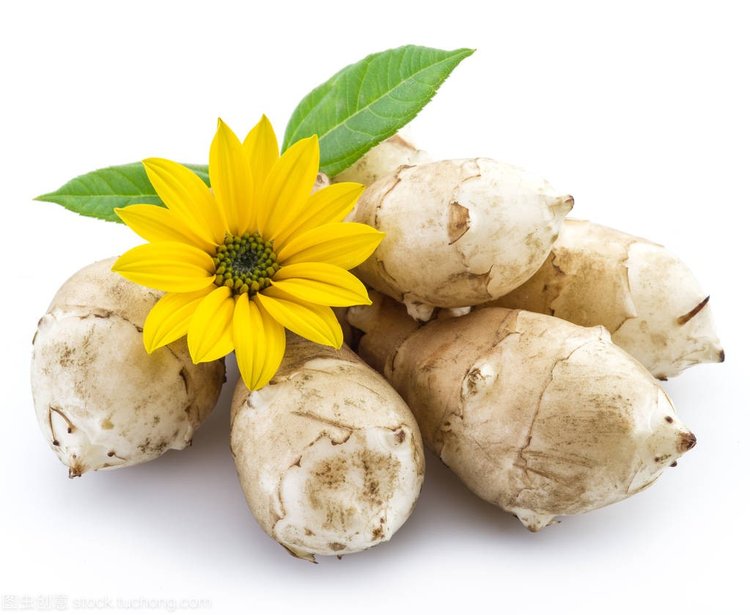1. What is inulin?
Inulin is a soluble dietary fiber, a type of fructose. It is associated with low fructose. Low fructose chains are shorter and inulin chains are longer, so inulin fermentation is slower and gas production is slower. Inulin creates a stickiness when dissolved in water, so it is often added to yogurt to adjust the concentration. Inulin is slightly sweet, one-tenth sweeter than sucrose, but contains no calories. The body itself does not digest inulin, and when it enters the colon, our gut bacteria use it. Inulin has good selectivity and is basically only used by good bacteria, making it one of the most recognized prebiotic bacteria.
2. What is the role of inulin?
Inulin is one of the most studied prebiotics, and many human trials have shown that it has a great impact on health. These include: improving high blood cholesterol, improving constipation, aiding weight loss and promoting the absorption of trace minerals.
① Improve hyperlipidemia
During the fermentation of inulin by intestinal bacteria, large amounts of short-chain fatty acids are produced. These short-chain fatty acids can improve the body's metabolism.
A systematic review showed that inulin lowered "low-density lipoprotein cholesterol"(ldl) in all people, and for people with type 2 diabetes, inulin raised levels of high-density lipoprotein cholesterol and helped them control their blood sugar.
② Improve constipation
Inulin can promote the growth of intestinal bifidobacteria and reduce the level of love for bacteria, thus helping to improve the intestinal environment. Inulin has better water storage, which also helps to improve constipation. Several randomized controlled trials have shown that inulin can help improve constipation in children, adults and the elderly. Inulin can reduce the difficulty of defecation, and can effectively increase the frequency and regularity of defecation.
However, despite its ability to improve constipation, inulin has no noticeable effect on bloating or abdominal pain. In fact, bloating is the most common side effect of inulin (excessive intake).
It helps to reduce weight.
As a dietary fiber, inulin can provide a feeling of satiety. Adding 8 grams of inulin (plus less fructose) to the daily supplement of obese children can effectively control their gastric hunger hormone levels. Their appetite will also decrease. In addition, inulin can reduce inflammation in obese people-lowering levels of c-reactive protein and tumor necrosis factor.
④ Promote the absorption of micronutrients
Some dietary fiber can promote the absorption of trace elements, inulin is one of them. Inulin can effectively promote the absorption of calcium and magnesium in the body.
3. How much inulin should I eat?
The safety of inulin is good. It is safe for most healthy people to consume 50 grams of inulin per day. In healthy people, a 0.14 g/kg inulin supplement is unlikely to cause an adverse reaction. (For example, if you are 60kg, supplement 60x 0.14g = 8.4g inulin per day), relieving constipation usually requires a larger dose of inulin, usually 0.21-0.4/kg. For sensitive people or people with ibs, inulin supplementation needs to be done carefully to avoid worsening of symptoms. A good strategy is to start with 0.5 grams and double it every 3 days if the symptoms are stable. for ibs patients, a maximum intake limit of 5g inulin is appropriate. Compared with inulin, low galactose is more suitable for ibs patients. Adding inulin to solid foods is better tolerated, so dietary supplementation is better.
4. What foods contain inulin?
Many plants in nature contain inulin, including chicory, ginger, garlic, onions and asparagus. Inulin is the most abundant source of inulin in nature. Chicory contains 35g-47g of inulin per 100g of dry weight.
Ginger (Jerusalem artichoke) contains 16g -100g of inulin per 20g of dry weight. Garlic is rich in inulin, which contains 9g-16g of inulin per 100g. Onions also have a certain amount of inulin, 1g-7.5g per 100g. Asparagus also contains inulin, 2g-3g per 100g. In addition, bananas, bezoar, green onions, onions also contain a certain amount of inulin.


